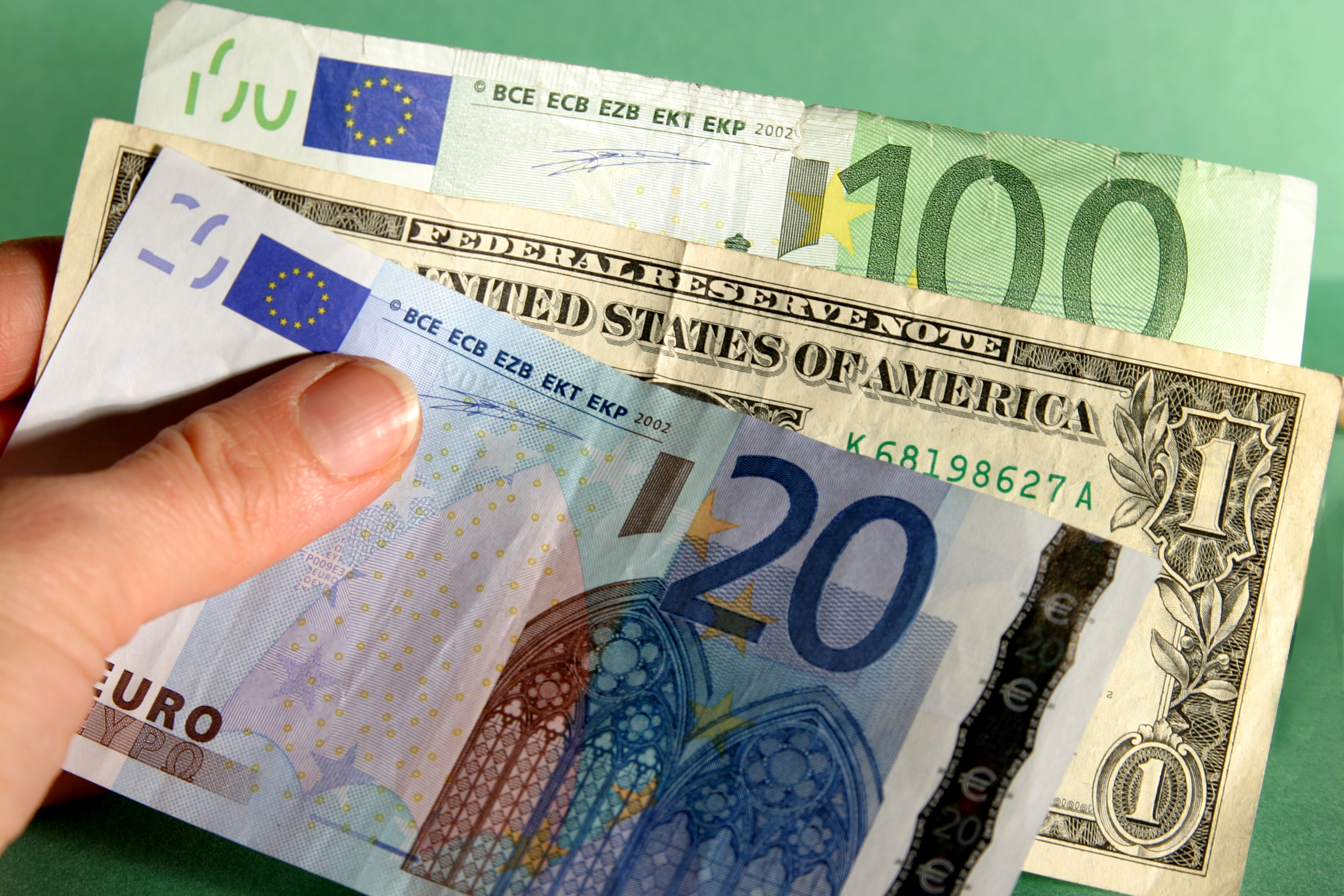Euro US Dollar (EUR/USD) Exchange Rate Muted as ECB Claims Eurozone Recession is ‘Very Low’ Risk
UPDATE 14/11/19: The Euro US Dollar (EUR/USD) was left flat on Thursday as data showed Germany escaped falling into recession, leaving the pairing trading at around $1.1013.
Earlier this morning, data revealed that the bloc’s largest economy narrowly avoided falling into recession in the third quarter.
Thanks to an increase in state spending, consumer spending and construction, quarterly expansion increased by 0.1%.
The pairing was left flat as European Central Bank (ECB) Vice-President Luis De Guindos said that there was now a ‘very low’ risk of the Eurozone suffering a recession.
However, he also noted that growth is likely to remain below potential unless governments within the bloc step up and do more.
Euro gains were limited as German Finance Minister Olaf Scholz said that the country was not in an economic crisis and argued there was no need for an immediate spending boost.
Euro US Dollar (EUR/USD) Exchange Rate Muted as Bloc’s Industrial Production Slumps
The Euro US Dollar (EUR/USD) exchange rate was left flat as the bloc’s industrial production disappointed, with the pairing trading at around $1.1016.
The single currency was left under pressure as data revealed Eurozone industrial production slumped for the 11th consecutive month in September.
Production slumped -1.7% following a previous fall of -2.8% which likely dampened the Euro and left the pairing flat.
Month-on-month, production in the bloc edged up by 0.1%, although this was only the fourth increase in the last year.
US Dollar (USD) Flat as US-China Trade Deal to be Signed ‘Soon’
On Tuesday evening, US President Donald Trump offered no new details on US-China trade discussions, only that the two countries would be completing an initial trade deal ‘soon’.
The President revealed that negotiators were ‘close’ to a ‘phase one’ deal, although this depended on China’s ‘cheating’ on trade.
His speech echoed the statements he made over the weekend, as he said:
‘They are dying to make a deal. We’re the ones that are deciding whether or not we want to make a deal.
‘We’re close. A significant phase one trade deal with China could happen. Could happen soon. But we will only accept a deal if it’s good for the United States and our workers and our great companies.’
While markets anticipated further details on talks, the news a deal could be happening ‘soon’ was enough to steady the ‘Greenback’.
Commenting on yesterday’s speech, global head of foreign exchange strategy at BMO Capital Markets in New York, Greg Anderson said:
‘The only thing that’s maybe news is that he did not announce a date and a time for a signing ceremony.
‘Where markets had been hoping for that, those hopes were dashed.’
Trump Criticises the Federal Reserve
In President Trump’s speech he also took aim at the monetary policy decisions of the US Federal Reserve once again.
Since July, the Fed have slashed rates three times, however this has not stopped the President from criticising the bank for not lowering rates even more.
In his speech, he noted:
‘Remember we are actively competing with nations that openly cut interest rates so that many are now actually getting paid when they pay off their loan, known as negative interest. Who ever heard of such a thing?
‘Give me some of that. Give me some of that money. I want some of that money. Our Federal Reserve doesn’t let us do it.’
However, after the speech, White House adviser Larry Kudlow told CNBC said:
‘I don’t think the United States needs negative rates […] because our economy is in very good shape.’
Euro US Dollar Outlook: Will Weak German Growth Weigh on EUR?
Looking ahead to this afternoon, the US Dollar (USD) could edge down against the Euro (EUR) as Federal Reserve Chair, Jerome Powell testifies before Congress.
If the Fed chair focuses on the weakness in the US economy, it is likely this will weigh on the ‘Greenback’.
Meanwhile, on Thursday the single currency could slide against the Dollar following the release of Germany’s flash Q3 GDP data.
If preliminary data reveals the German economy has shrunk for the second quarter in a row, the Euro US Dollar (EUR/USD) exchange rate is likely to slump.



